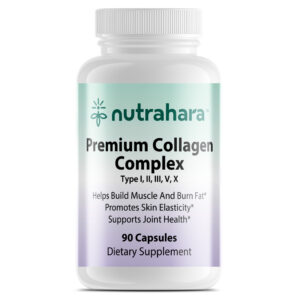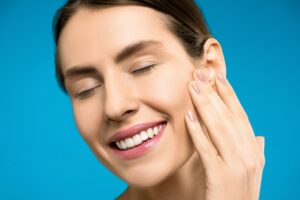
1. Arthritis Health Supplements: A Complete Guide to Natural Relief
Living with arthritis can feel overwhelming—aching joints, stiffness in the morning, and the fatigue that comes from constant discomfort. For many women, especially between ages 30 and 60, arthritis symptoms affect not just mobility but also confidence, independence, and emotional well-being. Conventional medications may help manage pain, but they rarely address the root causes such as inflammation, cartilage breakdown, or nutrient deficiencies.
This is why more women are turning toward arthritis health supplements and arthritis diet supplements as a supportive, natural approach. These supplements provide key nutrients, herbal extracts, and anti-inflammatory compounds that help the body repair tissues, strengthen bones, and ease pain without relying solely on pharmaceuticals.
The world of supplements can feel overwhelming, but when chosen wisely, they can make a profound difference in daily life. Whether it’s collagen for joint cushioning, omega-3s for reducing inflammation, or herbal extracts like turmeric and Boswellia for long-term relief, the right blend can restore energy and mobility.
In this guide, we’ll take a deep dive into the science, key ingredients, and lifestyle tips that make arthritis health supplements truly effective—empowering women to reclaim comfort, vitality, and freedom of movement.
2. Understanding Arthritis and the Role of Supplements
Arthritis is more than just joint pain—it’s a chronic condition that affects the way women move, sleep, and engage with life. While arthritis can strike anyone, women are especially vulnerable due to hormonal changes, bone density shifts, and lifestyle demands during midlife. This makes finding supportive solutions like arthritis health supplements and arthritis diet supplements a vital step in managing symptoms and maintaining long-term wellness.
Supplements don’t replace medical care, but they complement it beautifully. By targeting inflammation, replenishing cartilage, and nourishing the body at a cellular level, they help women reduce discomfort and maintain mobility without relying solely on pharmaceuticals.
2.1 What Is Arthritis?
Arthritis is an umbrella term for over 100 conditions that cause joint pain, swelling, and stiffness. Osteoarthritis results from wear and tear on cartilage, while rheumatoid arthritis is an autoimmune condition where the immune system mistakenly attacks the joints. Both forms can be supported with arthritis health supplements that reduce inflammation, promote cartilage repair, and strengthen bones.
2.2 Why Women Are More Susceptible
Women face unique risk factors due to hormonal fluctuations in estrogen and progesterone, which influence bone and joint health. Midlife changes also slow natural collagen production. By integrating arthritis diet supplements into daily routines, women can support joint strength, mobility, and energy, reducing long-term risks.

3. Key Nutrients Found in Arthritis Health Supplements
When it comes to managing arthritis naturally, nutrition plays a crucial role. The body needs specific vitamins, minerals, proteins, and plant compounds to repair tissue, reduce inflammation, and maintain strong bones. That’s why high-quality arthritis health supplements and arthritis diet supplements are formulated with targeted nutrients proven to ease symptoms and improve long-term mobility. Below are some of the most important ingredients to look for when choosing supplements.
3.1 Collagen and Joint Repair
Collagen is the protein that keeps joints cushioned, flexible, and strong. As women age, natural collagen production declines, leading to stiffness and pain. Supplementing with collagen peptides—such as Nutrahara’s Premium Collagen Complex—helps rebuild cartilage, reduce discomfort, and improve both mobility and skin elasticity.
3.2 Omega-3 Fatty Acids
Omega-3 fatty acids, found in fish oil and algae oil, are powerful anti-inflammatories. They reduce joint swelling and tenderness, making them a cornerstone of arthritis health supplements. Regular use supports both joint comfort and heart health.
3.3 Vitamin D and Calcium
Essential for bone strength, Vitamin D and calcium work together to protect against osteoporosis and fractures. Many arthritis diet supplements include both for optimal joint and bone support.
3.4 Herbal Extracts: Turmeric and Boswellia
Turmeric (curcumin) and Boswellia serrata are herbal extracts with centuries of traditional use. Modern studies confirm their ability to reduce inflammation and pain, making them essential in natural arthritis care.
3.5 Vitamin B Complex
Fatigue and nerve discomfort often accompany arthritis. A strong Vitamin B Complex supports nerve health, boosts energy, and complements other arthritis supplements for holistic relief.
4. The Science Behind Arthritis Diet Supplements
While traditional medications often focus on symptom management, arthritis diet supplements target the root causes of discomfort—chronic inflammation, cartilage breakdown, and nutrient deficiencies. Scientific research has shown that specific natural compounds can reduce inflammation at a cellular level, protect joint tissue, and even improve bone strength over time. This is why women are increasingly turning to arthritis health supplements as part of a holistic, long-term strategy for joint wellness.
4.1 Reducing Inflammation Naturally
Inflammation is the primary driver of arthritis pain. Studies have demonstrated that compounds like omega-3 fatty acids, turmeric (curcumin), and Boswellia lower inflammatory markers such as CRP (C-reactive protein). By addressing inflammation naturally, arthritis diet supplements help reduce stiffness and improve comfort without the side effects of long-term painkiller use.
4.2 Supporting Cartilage and Joint Cushioning
Cartilage acts as a cushion between bones, and its breakdown leads to painful friction in arthritis. Collagen, glucosamine, and chondroitin—commonly found in arthritis health supplements—supply the body with building blocks for cartilage repair. Women who supplement consistently often notice improved flexibility and fewer flare-ups.
4.3 Enhancing Mobility and Daily Comfort
Mobility impacts quality of life. Scientific trials confirm that consistent use of arthritis diet supplements not only reduces pain but also makes everyday activities—walking, gardening, climbing stairs—more comfortable. The result is greater independence, confidence, and vitality.

5. 7 Tips for Choosing the Right Arthritis Health Supplements
With so many products on the market, choosing the best arthritis health supplements can feel overwhelming. The key is to focus on quality, evidence, and synergy—selecting supplements that provide real therapeutic benefits instead of just trendy labels. Here are seven expert tips to guide your selection process.
5.1 Tip 1: Look for Clinical Research
The most effective arthritis diet supplements are those backed by peer-reviewed studies. Ingredients like turmeric, omega-3 fatty acids, and collagen have been extensively studied for their ability to reduce inflammation and improve joint comfort.
5.2 Tip 2: Opt for Bioavailable Forms
Not all supplements absorb well in the body. For example, turmeric is far more effective when combined with black pepper extract (piperine). Choosing arthritis health supplements in bioavailable forms ensures your body actually uses the nutrients.
5.3 Tip 3: Prioritize Combination Formulas
Instead of buying separate products, look for arthritis diet supplements that combine multiple nutrients—such as collagen, glucosamine, and Vitamin D. Synergy between ingredients maximizes results and simplifies your routine.
5.4 Tip 4: Avoid Fillers and Additives
High-quality arthritis health supplements should be free of unnecessary fillers, dyes, and artificial additives. Clean labels indicate higher purity and better safety for long-term use.
5.5 Tip 5: Choose Collagen for Long-Term Joint Health
Collagen is essential for women over 40, as natural production declines with age. A daily collagen supplement strengthens joints, improves skin elasticity, and supports connective tissues.
5.6 Tip 6: Pay Attention to Dosage
Dosage matters. A supplement with just a sprinkle of turmeric won’t be effective. Check labels to ensure your arthritis diet supplements match clinically proven therapeutic amounts.
5.7 Tip 7: Consult Your Healthcare Provider
Even natural arthritis health supplements may interact with medications. Always check with your healthcare provider before starting a new supplement regimen.
6. Lifestyle Habits That Enhance the Benefits of Arthritis Health Supplements
While arthritis health supplements play a powerful role in reducing inflammation and supporting joint health, they work best when combined with simple, sustainable lifestyle habits. Supplements provide the building blocks, but daily routines amplify their effectiveness—helping women experience not just symptom relief, but also greater vitality and independence.
6.1 Anti-Inflammatory Diet
Food is one of the most powerful forms of medicine. A diet rich in leafy greens, berries, nuts, seeds, and fatty fish complements arthritis diet supplements by reducing systemic inflammation. Limiting refined sugar, processed foods, and fried oils helps prevent flare-ups and supports joint healing. Pairing supplements like turmeric or omega-3s with an anti-inflammatory diet multiplies their impact.
6.2 Gentle Movement and Yoga
Joints thrive on gentle movement. Low-impact exercises such as yoga, swimming, and walking improve circulation, keep joints lubricated, and prevent stiffness. When practiced alongside arthritis health supplements, daily movement helps nutrients reach the joints more effectively and improves overall flexibility. Restorative yoga, in particular, offers both physical relief and emotional calm.
6.3 Mind-Body Wellness
Stress is a hidden driver of inflammation. Practices like meditation, deep breathing, and journaling reduce cortisol levels, creating a more balanced internal environment for healing. Supplements such as Nutrahara’s FocusZenith and AnxioGuard can support relaxation, making mind-body wellness a cornerstone of arthritis care.
Together, these habits create a holistic foundation, helping arthritis diet supplements deliver their full benefits while empowering women to reclaim daily comfort and joy.
7. Testimonials: Real Women Share Their Experiences with Arthritis Health Supplements
7.1 Maria, 52 – Rediscovering Morning Flexibility
“For years, my mornings began with pain. My knees felt locked, and it took nearly an hour of stretching before I could move comfortably. I felt old before my time. A friend recommended collagen and omega-3 arthritis health supplements, and at first, I was skeptical. But within three months, the difference was undeniable. I could get out of bed without that familiar stiffness, and gardening—my lifelong passion—became enjoyable again. Today, I wake up feeling free, not trapped in my own body. These supplements gave me back something priceless: my mornings.”
7.2 Aisha, 47 – From Exhaustion to Energy
“As a working mom of two, I couldn’t afford to slow down, yet arthritis made me feel constantly exhausted. The pain in my hands and hips left me drained by mid-afternoon. Adding arthritis diet supplements with turmeric, Vitamin B Complex, and fish oil was life-changing. Not only did my pain lessen, but I felt a surge of natural energy I hadn’t experienced in years. Now, instead of collapsing after work, I actually play soccer with my kids. For me, supplements didn’t just ease arthritis—they gave me my energy and joy back.”
7.3 Linda, 60 – Confidence in Mobility
“I used to avoid leaving the house alone. My joints felt weak, and I feared falling or stumbling. It was heartbreaking to give up my daily walks. After starting collagen and Boswellia-based arthritis health supplements, my joints felt more stable and resilient. Within six months, I was confidently walking two miles every day again. I even joined a local walking group, and now my evenings are filled with laughter and connection. For me, supplements restored more than mobility—they gave me back my confidence.”
7.4 Priya, 44 – A Natural Approach That Works
“Prescription painkillers helped, but I didn’t want to depend on them forever. That’s when I turned to arthritis diet supplements with collagen, glucosamine, and turmeric. At first, progress was slow, but after consistent use, I noticed I could bend, stretch, and sit cross-legged again—things I hadn’t done in years. The best part? I didn’t feel drowsy or dependent, just naturally supported. Today, I combine supplements with yoga, and my joints feel freer than they have in over a decade. Choosing a natural approach was the best decision I’ve made for my long-term health.”
7.5 Sarah, 55 – Feeling Empowered Again
“Living with arthritis made me feel helpless. Pain dictated my schedule, and I felt like I was just surviving. When I began using arthritis health supplements—a blend of collagen, omega-3s, and Vitamin D—I felt something shift. Slowly but surely, I regained control over my body. I could travel, go shopping, and enjoy outings without constant pain. More than anything, these supplements made me feel empowered, as though I was actively participating in my healing journey. I’m no longer reacting to arthritis—I’m leading the way toward my own well-being.”
8. Final Thoughts: Embracing Arthritis Health Supplements with Confidence
Living with arthritis can feel like a constant battle—one that affects not only the body but also the mind and spirit. Yet, as we’ve seen, there is a hopeful and empowering path forward. By integrating arthritis health supplements and arthritis diet supplements into daily life, women can actively support their bodies, reduce discomfort, and regain mobility without relying solely on medications.
The science is clear: nutrients like collagen, omega-3 fatty acids, turmeric, Boswellia, Vitamin D, and Vitamin B Complex provide measurable benefits for joint health, bone strength, and inflammation control. When combined with lifestyle practices such as an anti-inflammatory diet, gentle movement, and stress management, these supplements create a holistic approach that empowers women to live with vitality.
Nutrahara’s offerings—including Premium Collagen Complex, Vitamin B Complex, and Ashwagandha with Black Pepper—are thoughtfully formulated to complement this journey. They are not just capsules, but tools for resilience, freedom, and self-care.
Arthritis does not have to define your future. With the right knowledge, habits, and supplements, you can reclaim your energy, flexibility, and confidence. Let arthritis become not a limitation, but an invitation to nurture yourself more deeply and live life on your own terms.
Disclaimer: This article is not a substitute for medical advice. Please consult a healthcare professional before starting any supplement, especially if pregnant, nursing, taking medication, or managing health conditions.
Written by the Nutrahara Team
This article was developed by the Nutrahara team of nutrition scientists and naturopaths, who specialize in formulating safe, effective, and science-backed supplements for women’s health. Every ingredient we use is carefully selected to support your body’s unique needs—naturally. Follow us on LinkedIn for expert insights and updates on our latest wellness solutions.




























